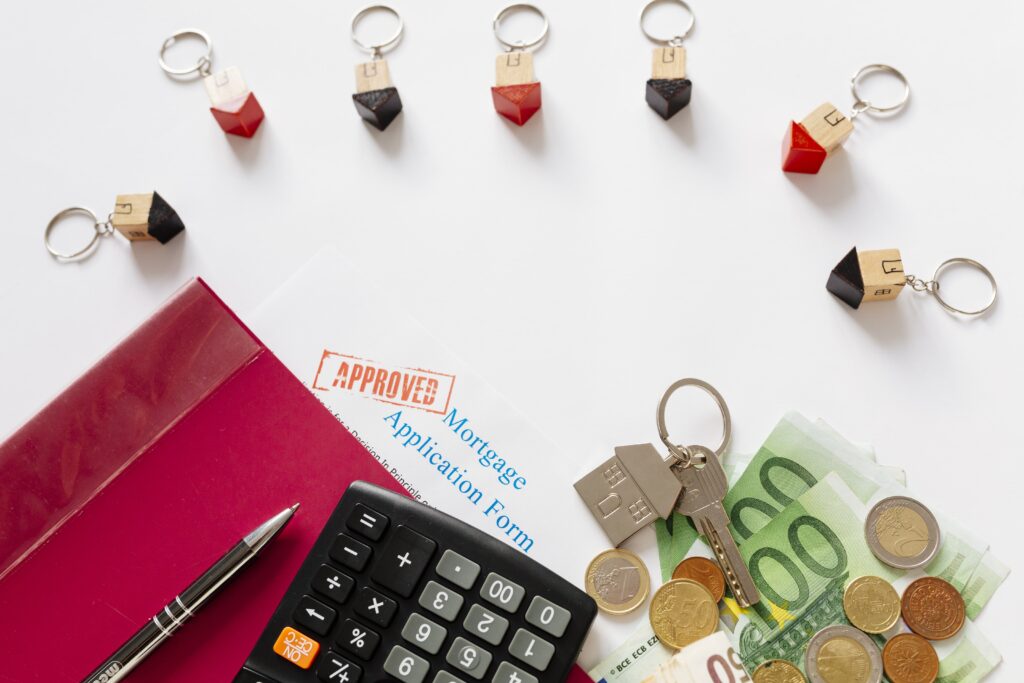For most first-time buyers, the biggest question isn’t “how much can I borrow?”, it’s “when should I start?”
It’s a question we hear every week at HFA Mortgage & Protection, and it’s an important one. The truth is, you can begin preparing for a mortgage long before you’ve even booked your first viewing. Some of the most successful buyers we help have started their planning six months, even a year, before they begin house hunting. Early preparation doesn’t just make the process smoother. It can directly improve your chances of getting the mortgage you want, on the terms you need.
Why starting early matters
Buying your first home is one of life’s biggest milestones, but it also involves one of the most detailed financial assessments you’ll ever go through. Lenders don’t just look at your salary; they look at the full picture, including income, spending habits, debts and the stability of your financial history.
The earlier you begin preparing, the more time you have to strengthen that picture. For example:
- If you’ve recently changed jobs, giving yourself time to build a track record of stable income will help.
- If you have outstanding loans or credit cards, starting early gives you the chance to pay them down.
- If you’ve never reviewed your credit report before, you’ll have time to check for errors or missed payments that could affect your score.
Getting ready early also helps you build confidence. You’ll understand what lenders want, what paperwork you’ll need, and what size deposit will give you the most flexibility when you start comparing properties.
What lenders really look for
Every lender has its own criteria, but there are a few key things they all assess when considering your application:
1. Income stability – Regular employment or a steady self-employed income gives lenders reassurance that you can maintain repayments. If you’ve only recently started a new job, it’s often wise to wait until you’ve received at least one or two payslips before applying.
2. Deposit and savings – The larger your deposit, the smaller your loan-to-value (LTV) ratio, and the more competitive your mortgage options will be. Saving consistently, even if the amounts are modest, demonstrates financial discipline.
3. Credit conduct – Lenders check your credit file for missed payments, payday loans or frequent applications for credit. Good account management, such as paying bills on time and keeping credit card balances low, helps show reliability.
4. Affordability – Beyond income, lenders look at your spending patterns. They’ll review bank statements to see how much disposable income remains each month after essentials like rent, utilities and living costs.
At HFA, we help you understand how these factors work together. Sometimes small adjustments, like reducing an unused overdraft limit or closing an old store card, can make a noticeable difference when your application is assessed.
The role of an Agreement in Principle (AIP)
Once your finances are in good shape, the next key step is securing an Agreement in Principle, also known as a Decision in Principle or Mortgage in Principle. This is a statement from a lender that, based on the information you’ve provided, they’d be willing to lend you a certain amount.
It’s not a full mortgage offer, but it’s an important part of the process for three reasons:
1. It gives you clarity. You’ll know your price range before you start viewing properties.
2. It strengthens your offer. Estate agents and sellers take you more seriously if you already have an AIP.
3. It saves time later. When you find the right property, much of the groundwork is already complete.
A good broker will help you get an AIP from the right type of lender, one whose criteria match your circumstances. At HFA, we’ll also check that the lender’s affordability calculations are realistic for your budget, not just on paper.
Why first-time buyers have an advantage
Although it can feel daunting, being a first-time buyer comes with its own strengths. You’re not part of a chain, which makes you more attractive to sellers. A chain-free buyer means fewer potential delays and a faster route to completion. A big plus in a competitive market.
In addition, there are government-backed schemes and lender incentives designed specifically to help first-time buyers. Whether that’s lower deposit options, help-to-buy savings, or preferential rates for new entrants to the market, we’ll guide you through what’s available and what’s worth considering.
Getting your timing right
So, when should you actually apply? The answer depends on where you are in your journey:
- If you’re still saving: Start speaking to a mortgage adviser now. Understanding your target deposit and price range gives you a clear goal to work towards.
- If you’re planning to buy in the next 6–12 months: Begin gathering paperwork, payslips, bank statements, proof of address and we can check your credit profile and affordability.
- If you’ve already found a property: Contact a broker immediately to secure your Agreement in Principle and formal application. The sooner you act, the quicker you can move from offer to exchange.
The key is not to wait until the last minute. A short, informal chat with an adviser well before you’re ready to buy can make all the difference when the time comes.
How a broker like HFA helps
Navigating the mortgage process alone can be overwhelming. Every lender has slightly different rules and one small oversight can delay or derail your application. That’s where an experienced broker steps in.
At HFA Mortgage & Protection, we’ll:
- Review your situation in full — income, savings, credit profile and goals.
- Match you with lenders most likely to accept your application.
- Explain every step clearly, without jargon or pressure.
- Keep things moving smoothly once you’ve found your property.
Our role is to make the process easier, faster and more transparent, so you can focus on the exciting part, finding your first home.
Start your journey with HFA
If you’re thinking about buying your first home, the best time to start preparing is now. A quick conversation today can save weeks of stress later and help you move from dreaming to planning with confidence.
Speak to HFA Mortgage & Protection and we’ll guide you step-by-step, from your first conversation to getting your keys.
Visit https://hfassociates.uk to get started.
Disclaimer:
There may be a fee for mortgage advice. The precise amount of the fee will depend upon your circumstances but will range from £195 to £1500.
Your home may be repossessed if you do not keep up repayments on your mortgage.





